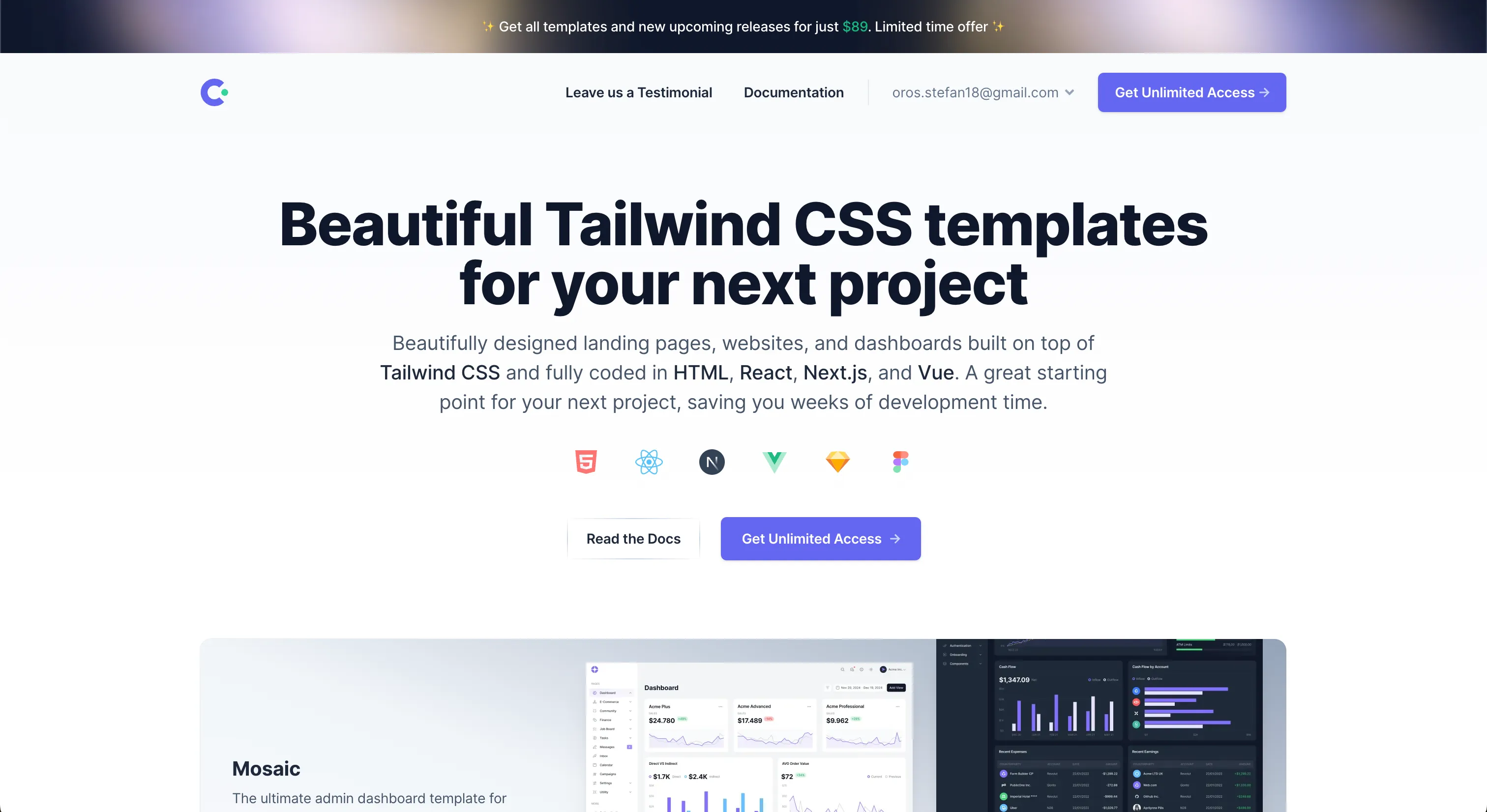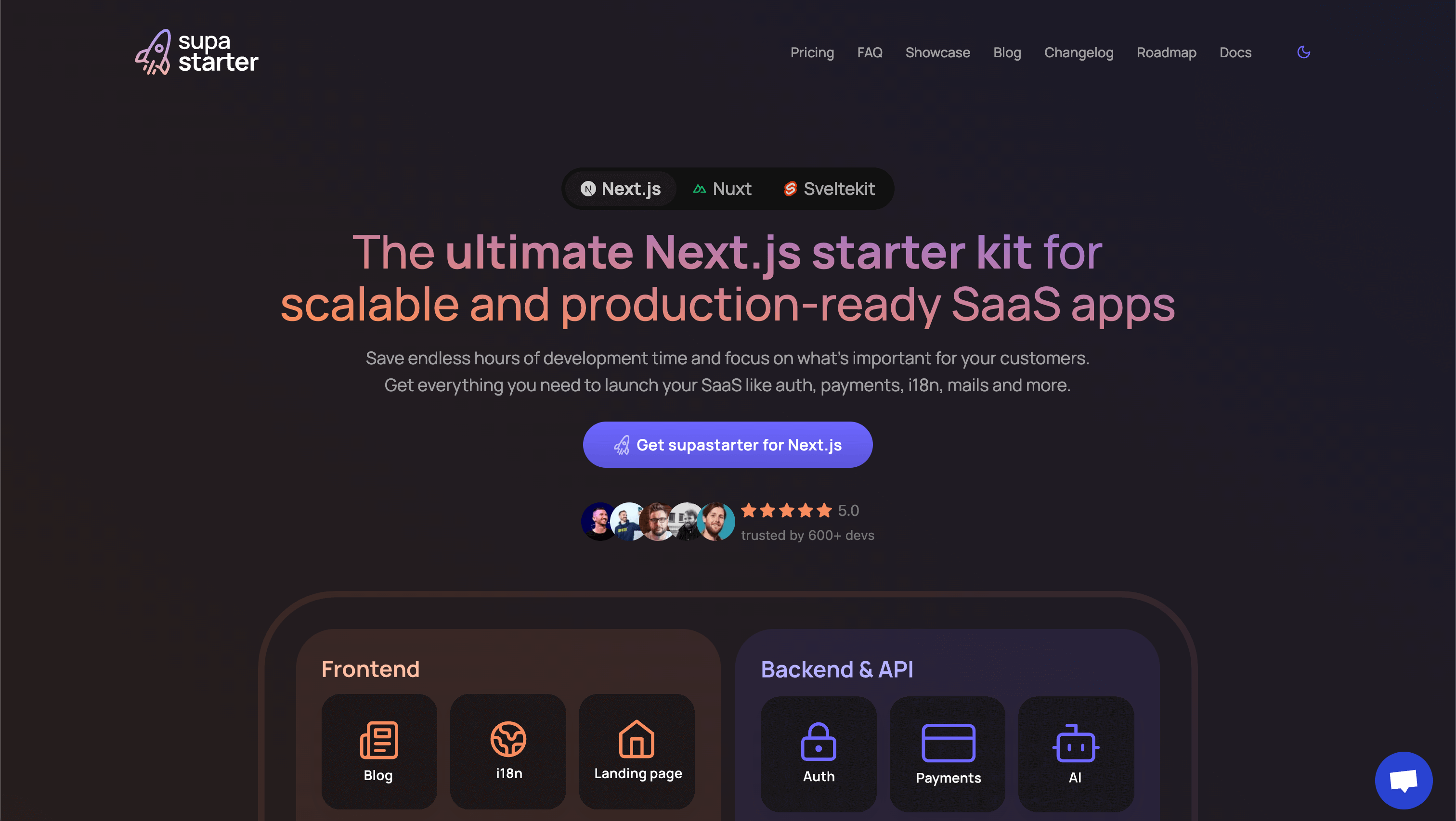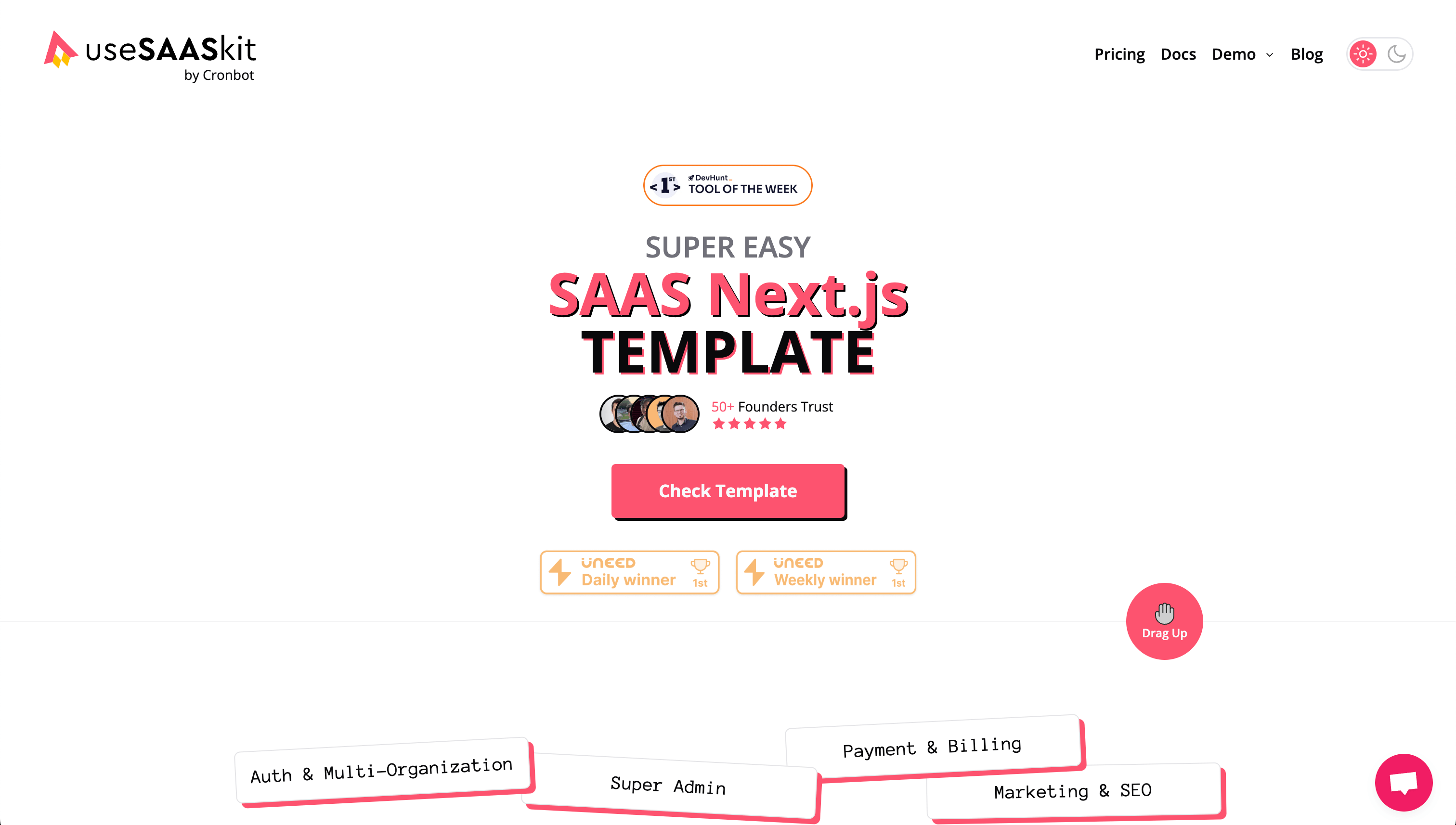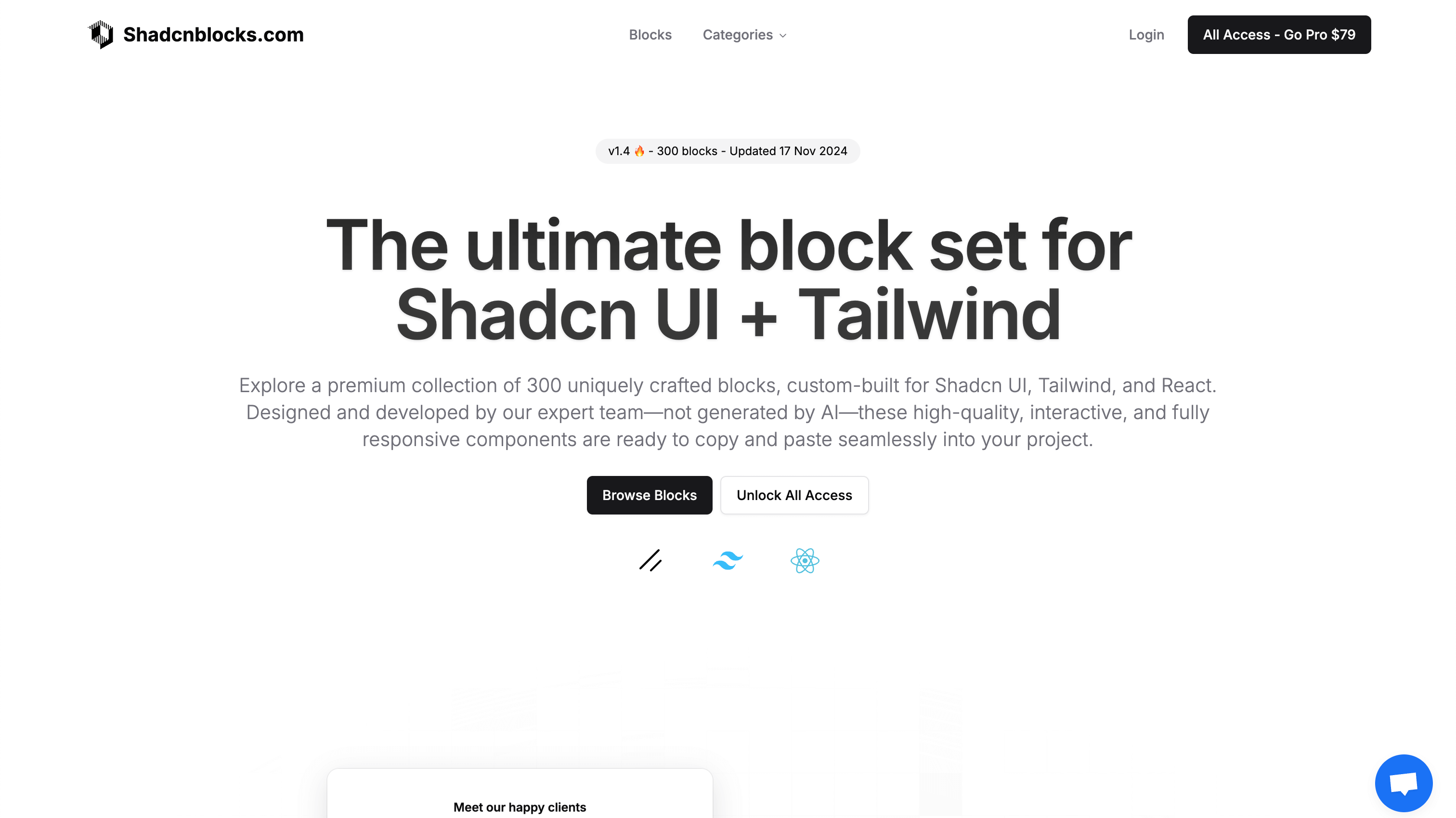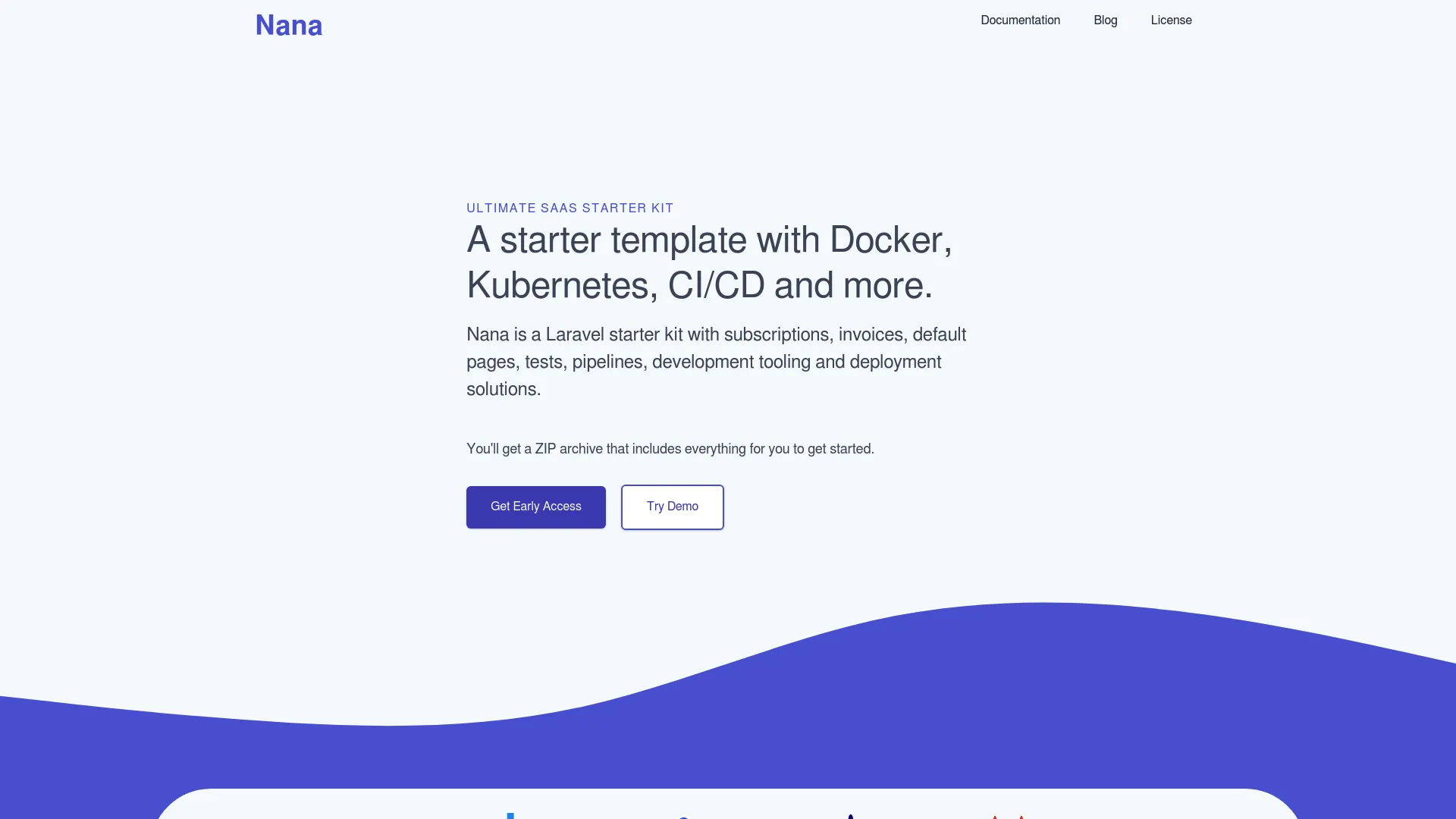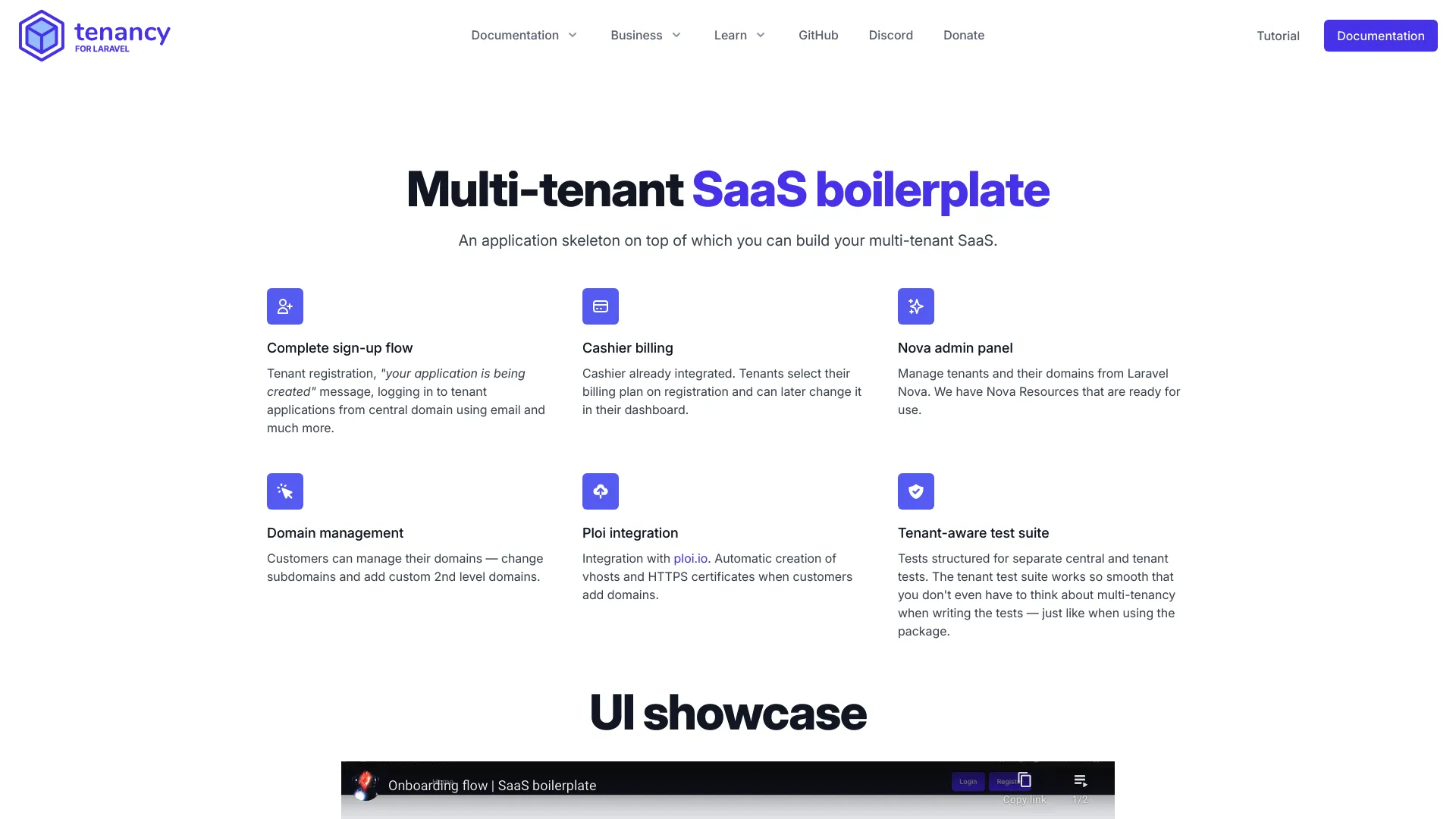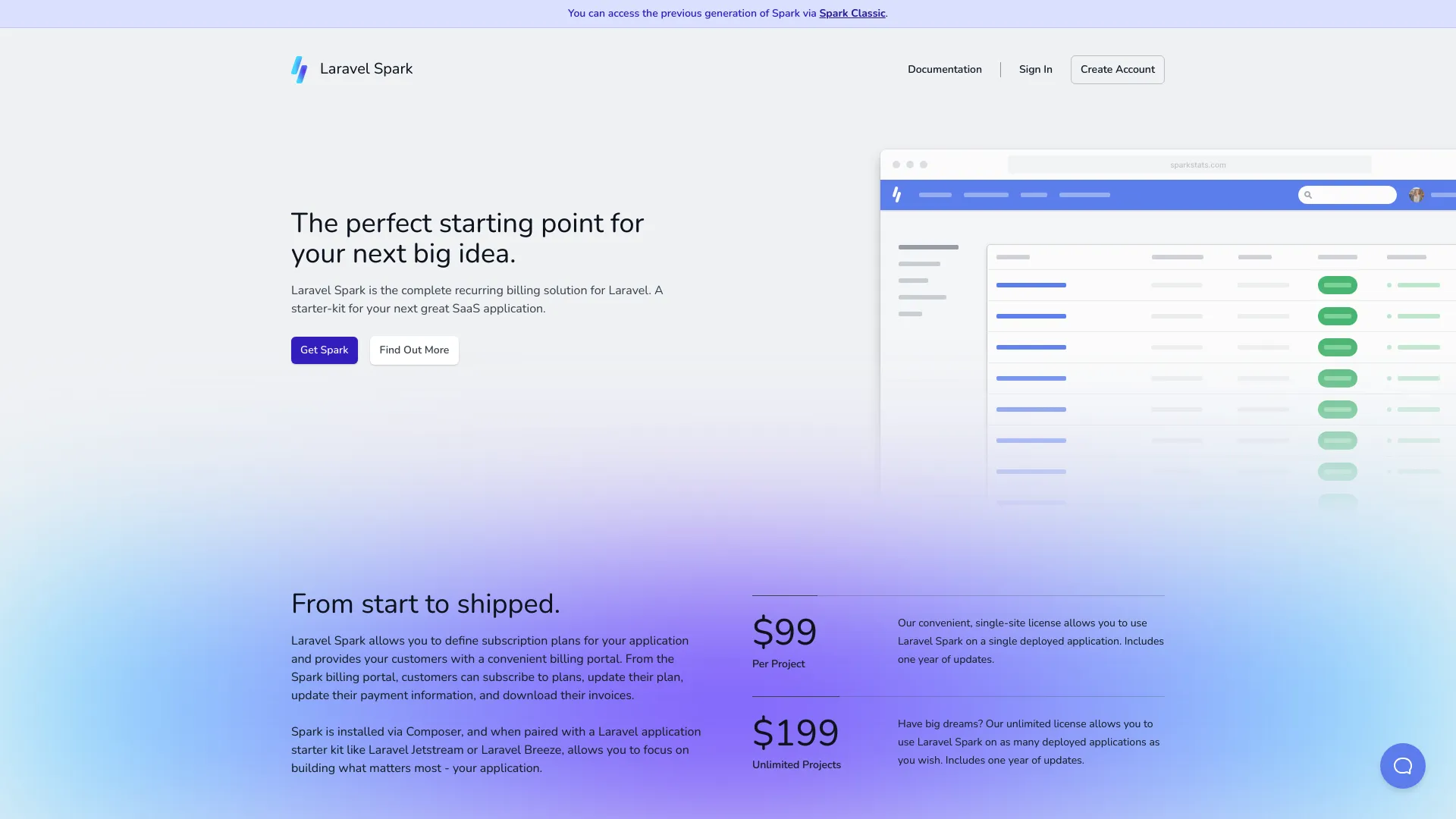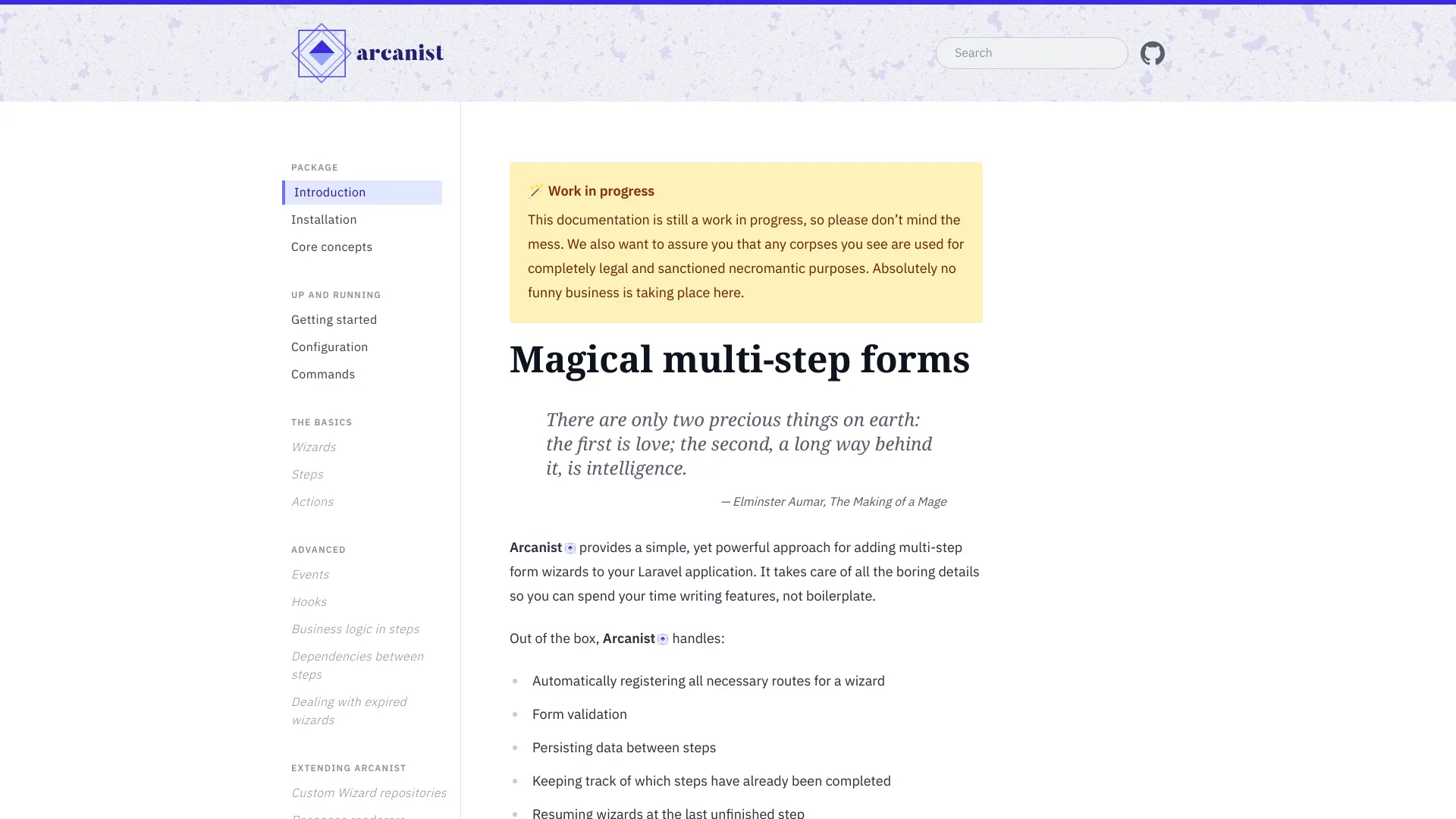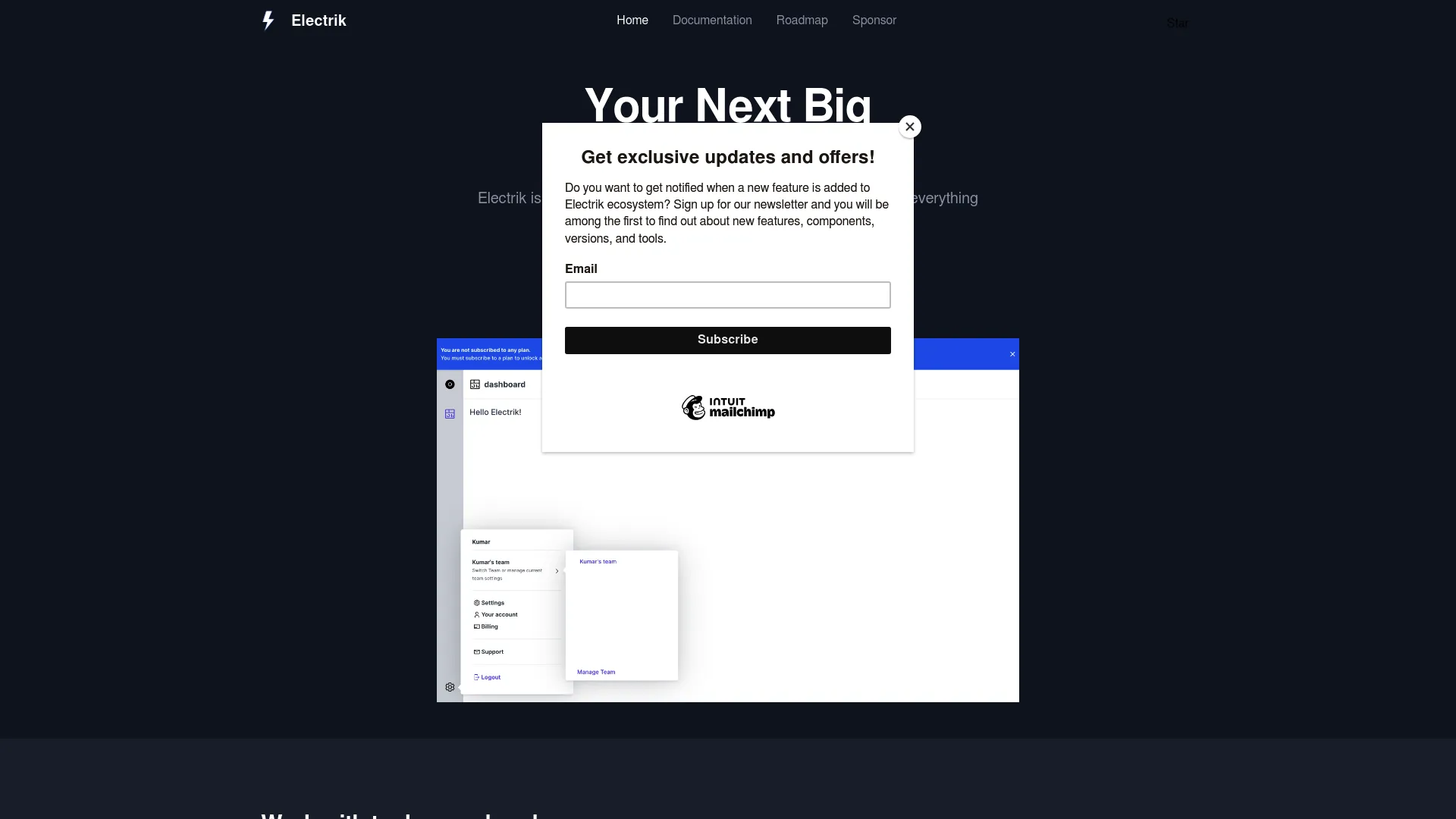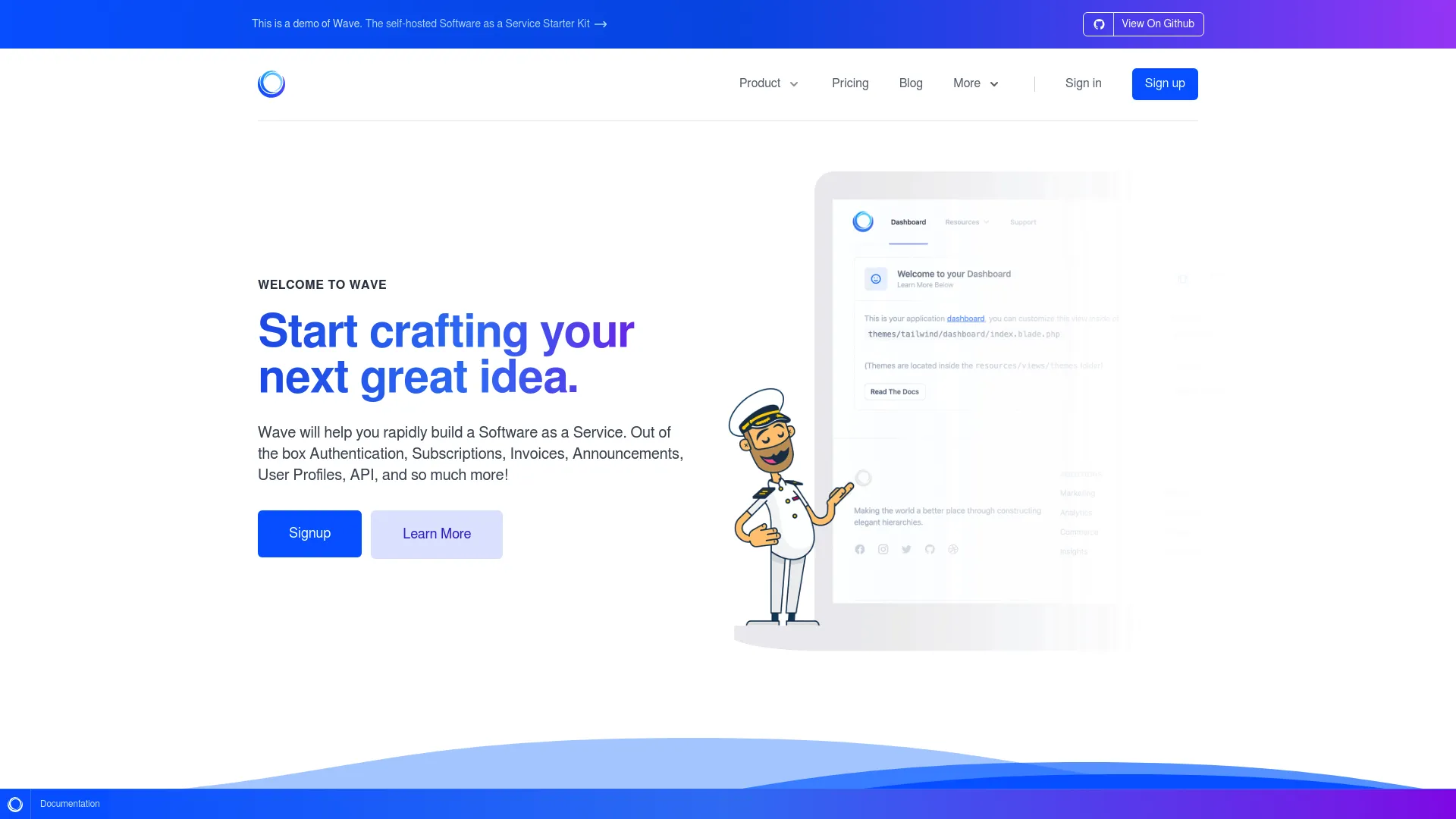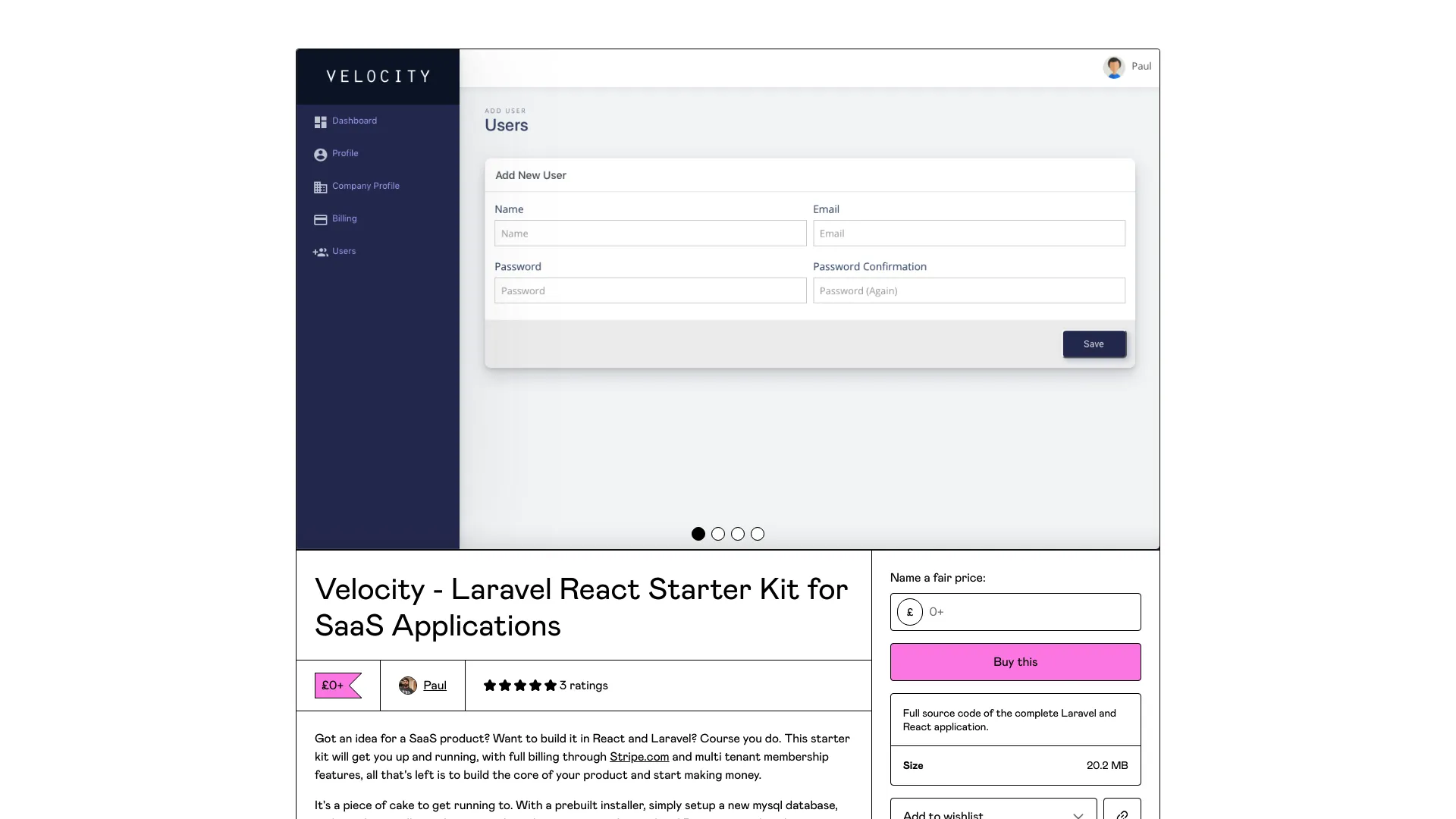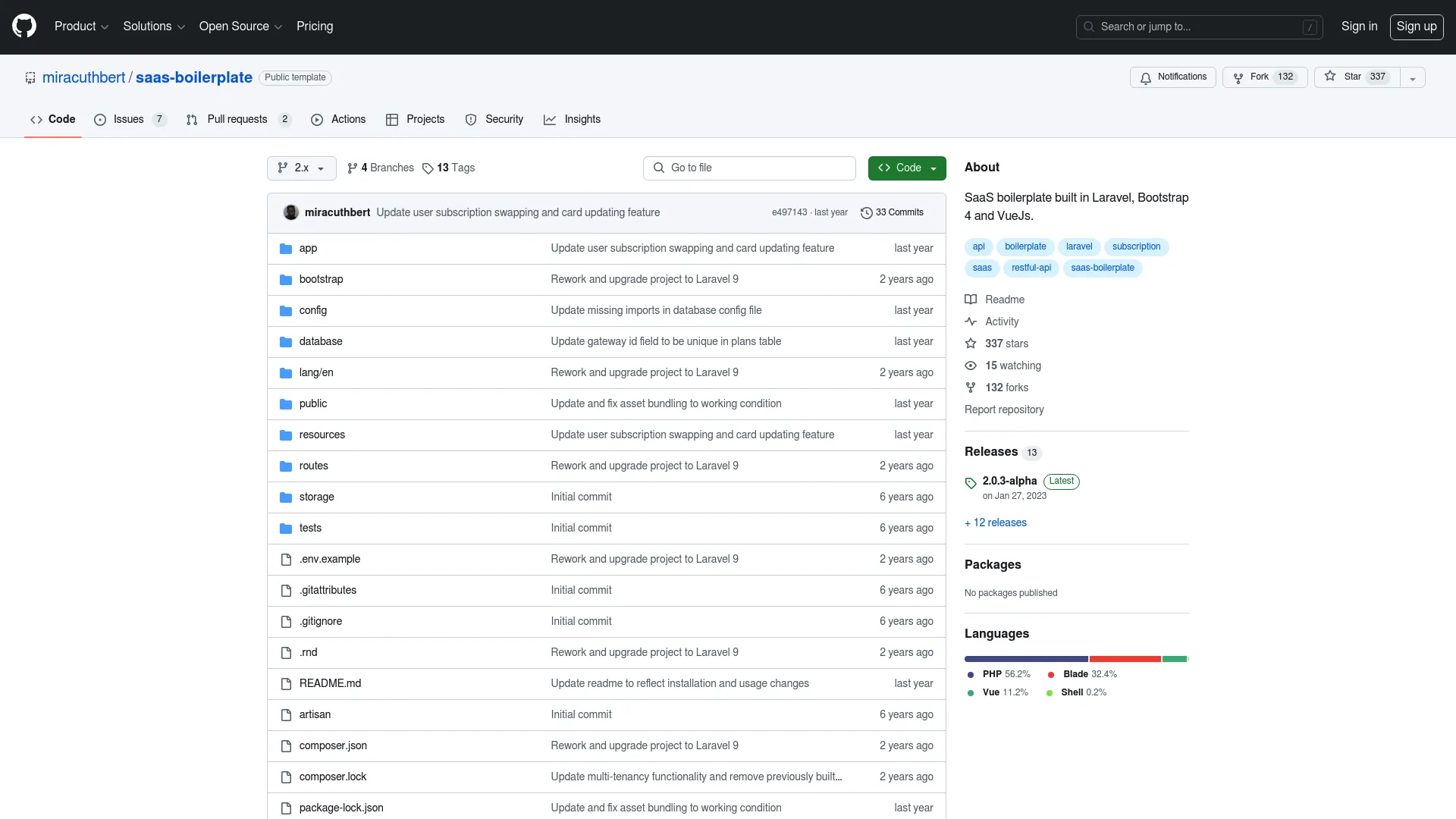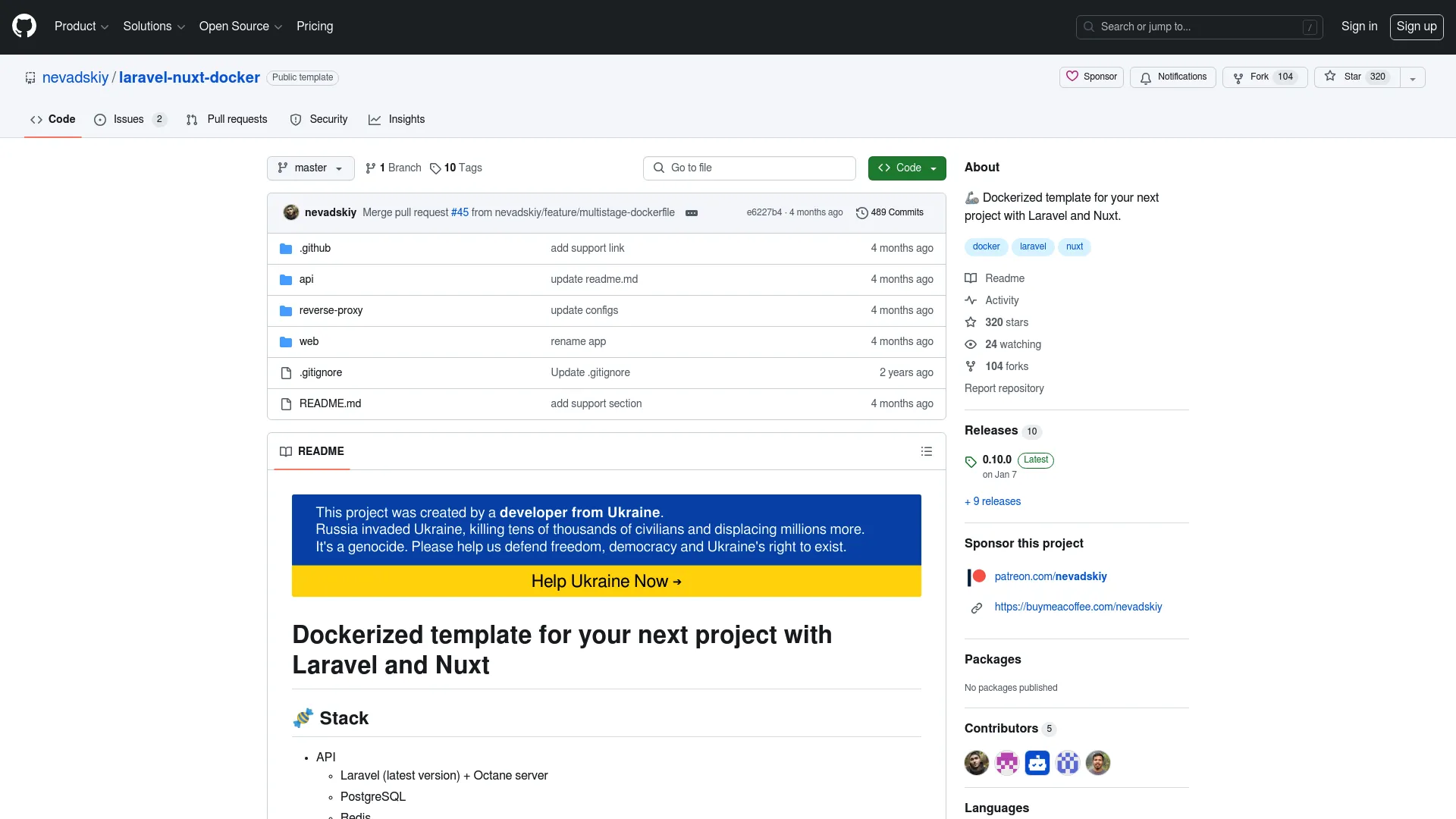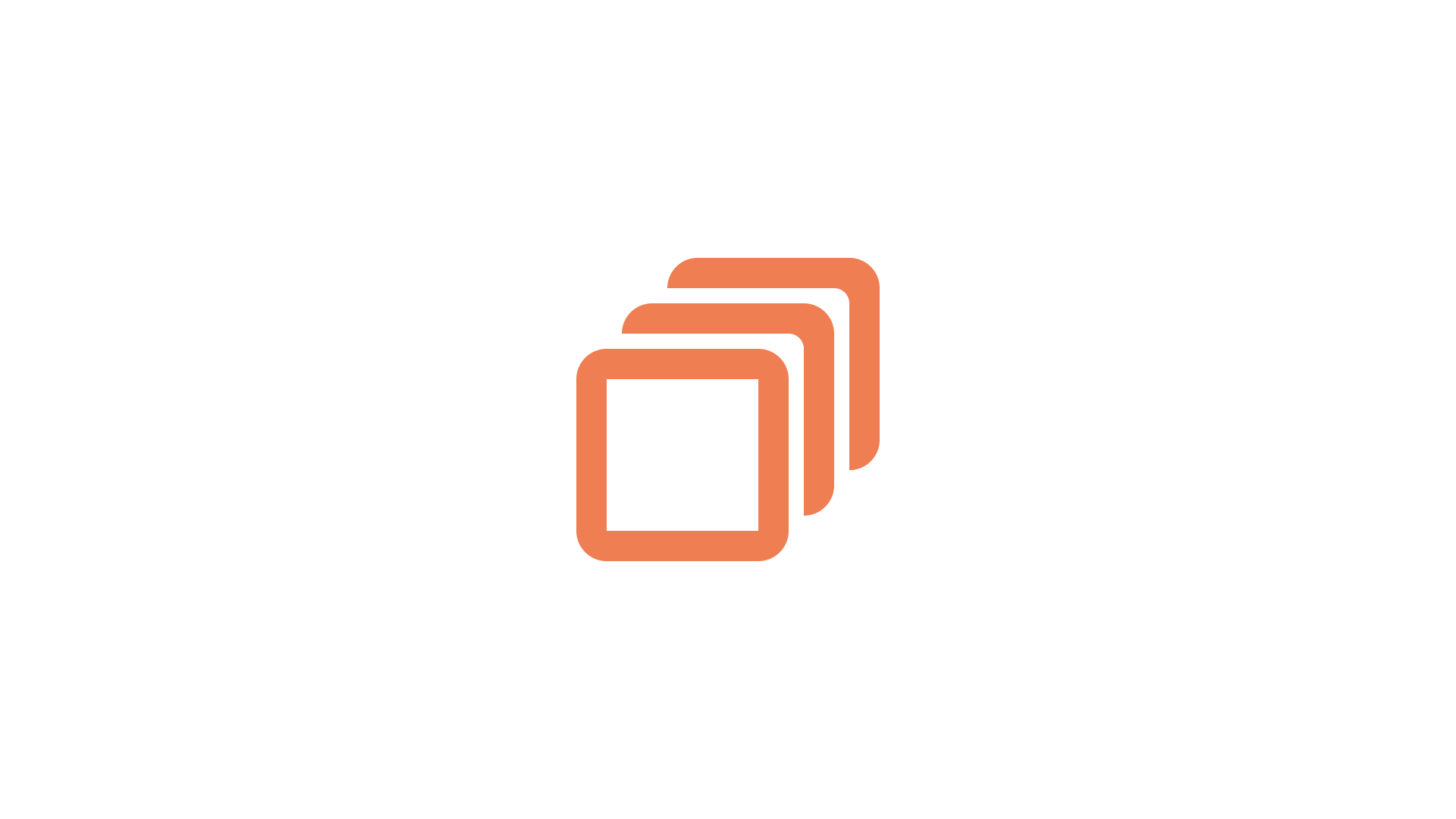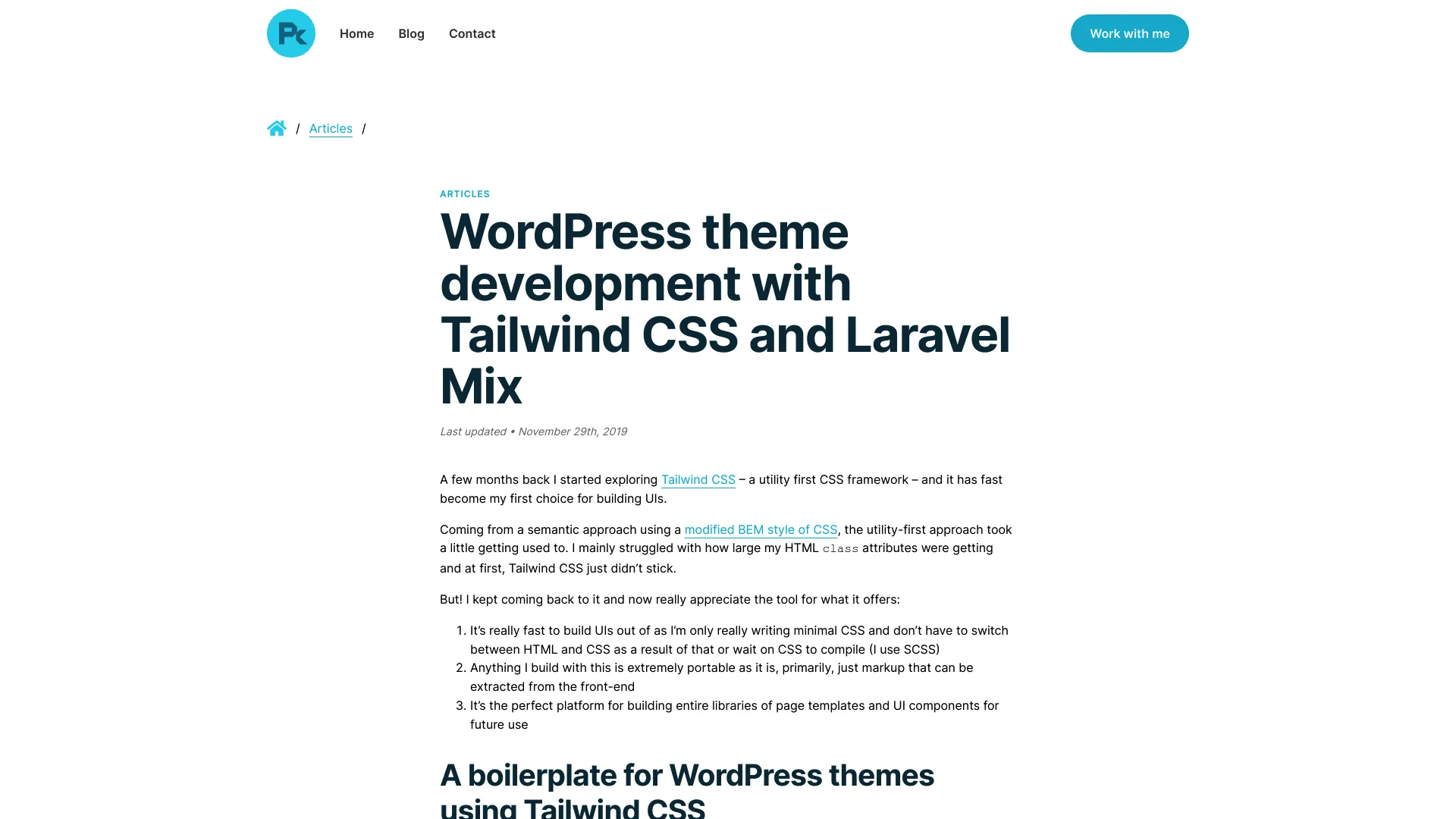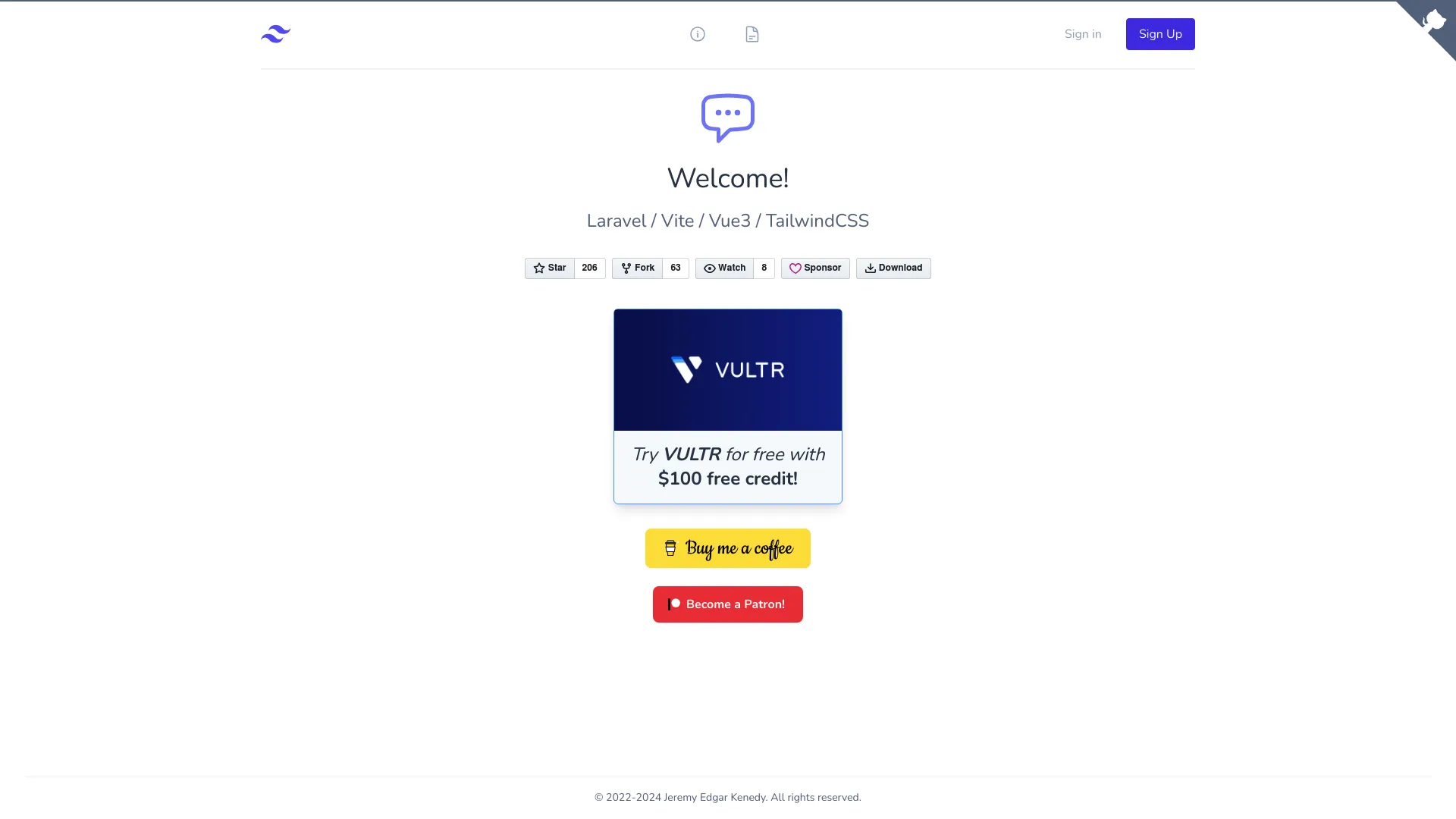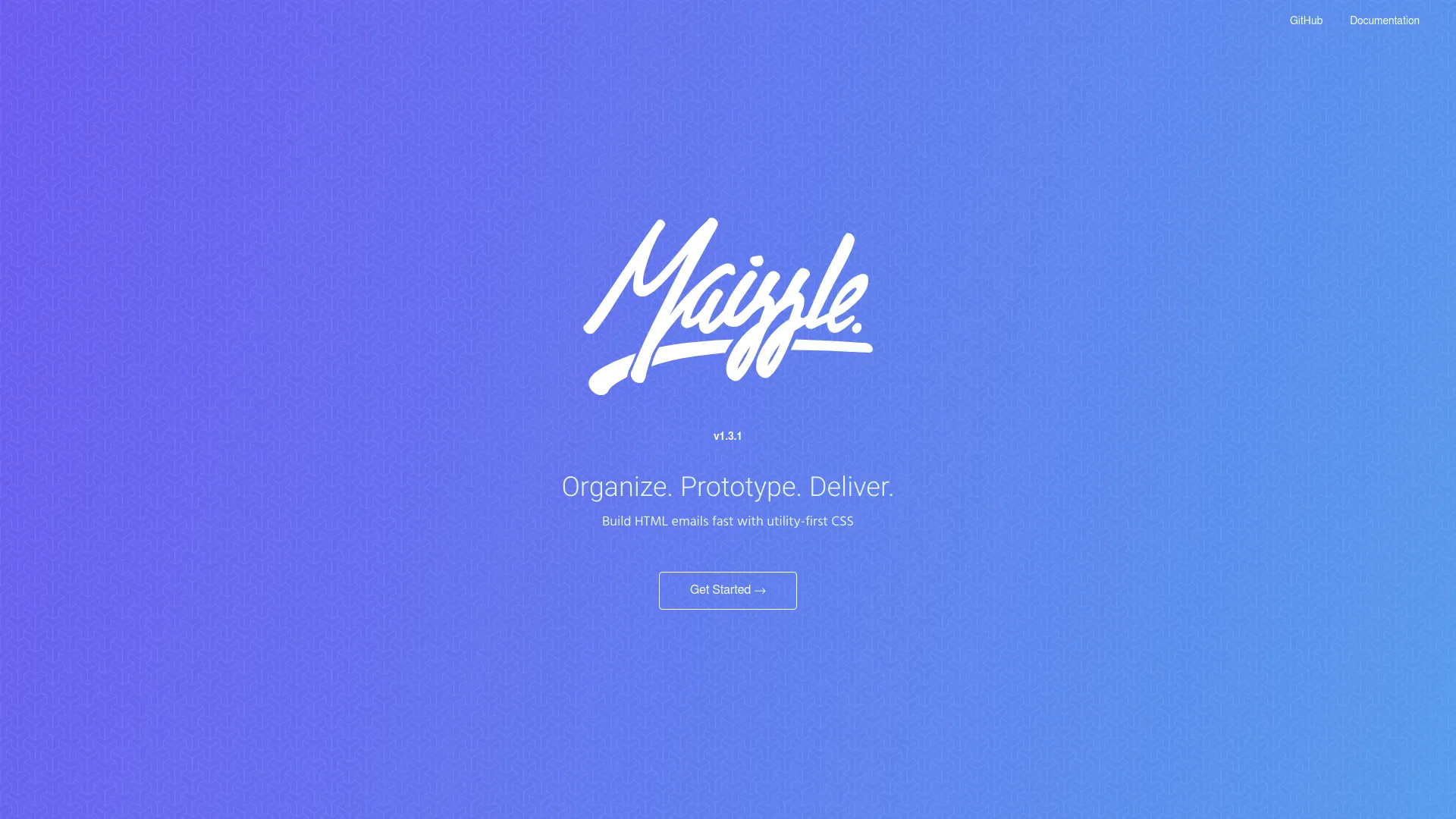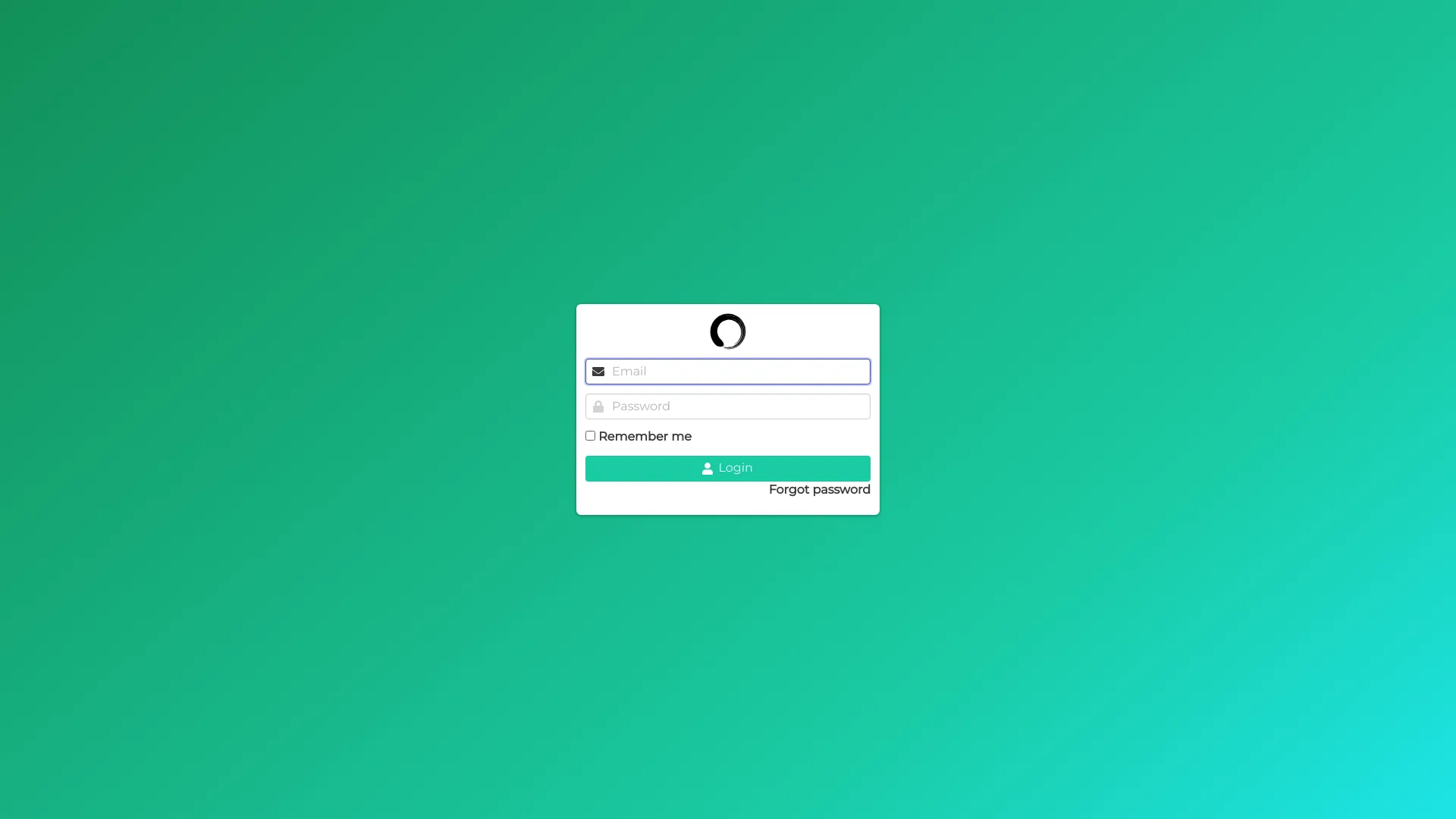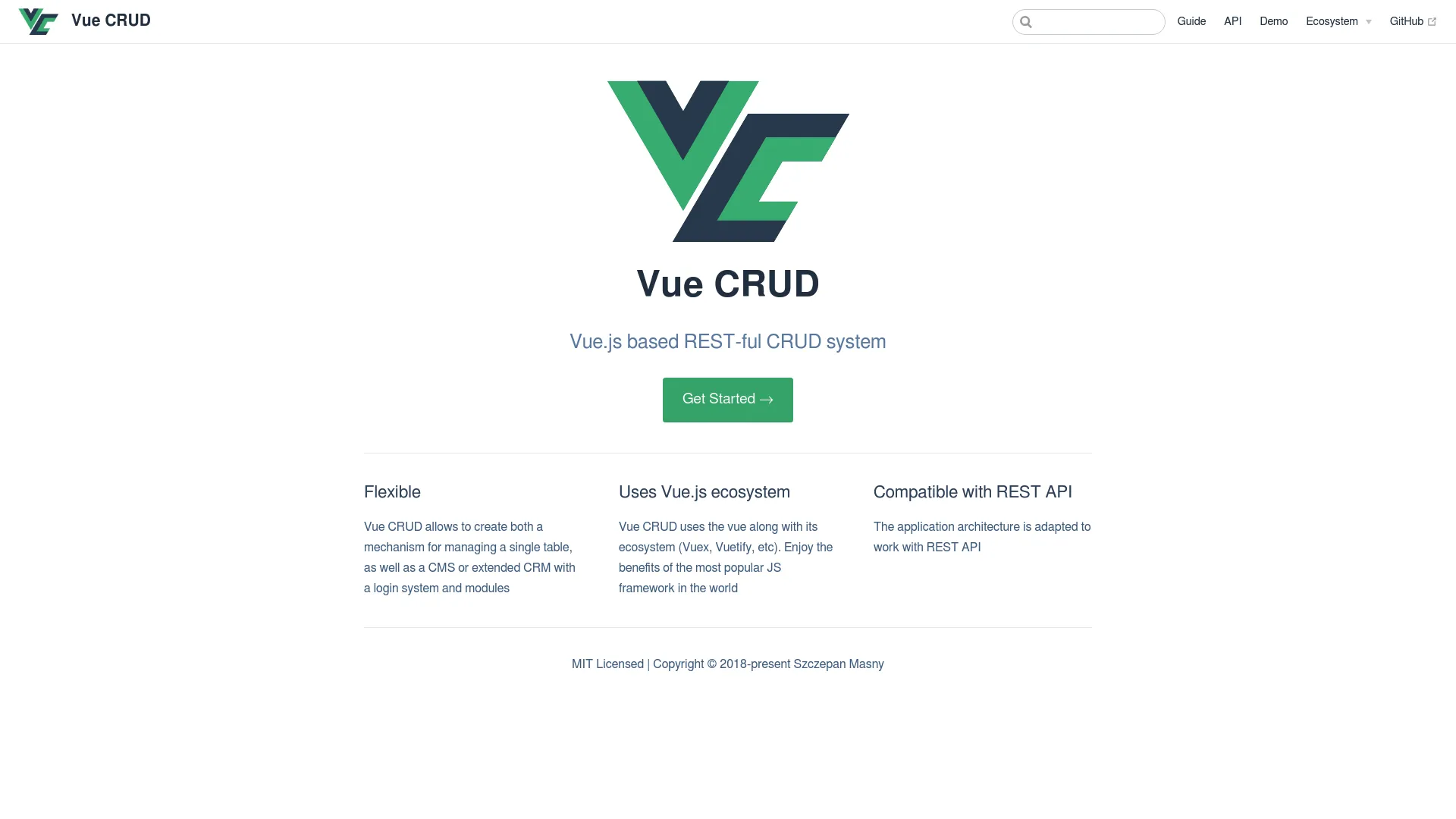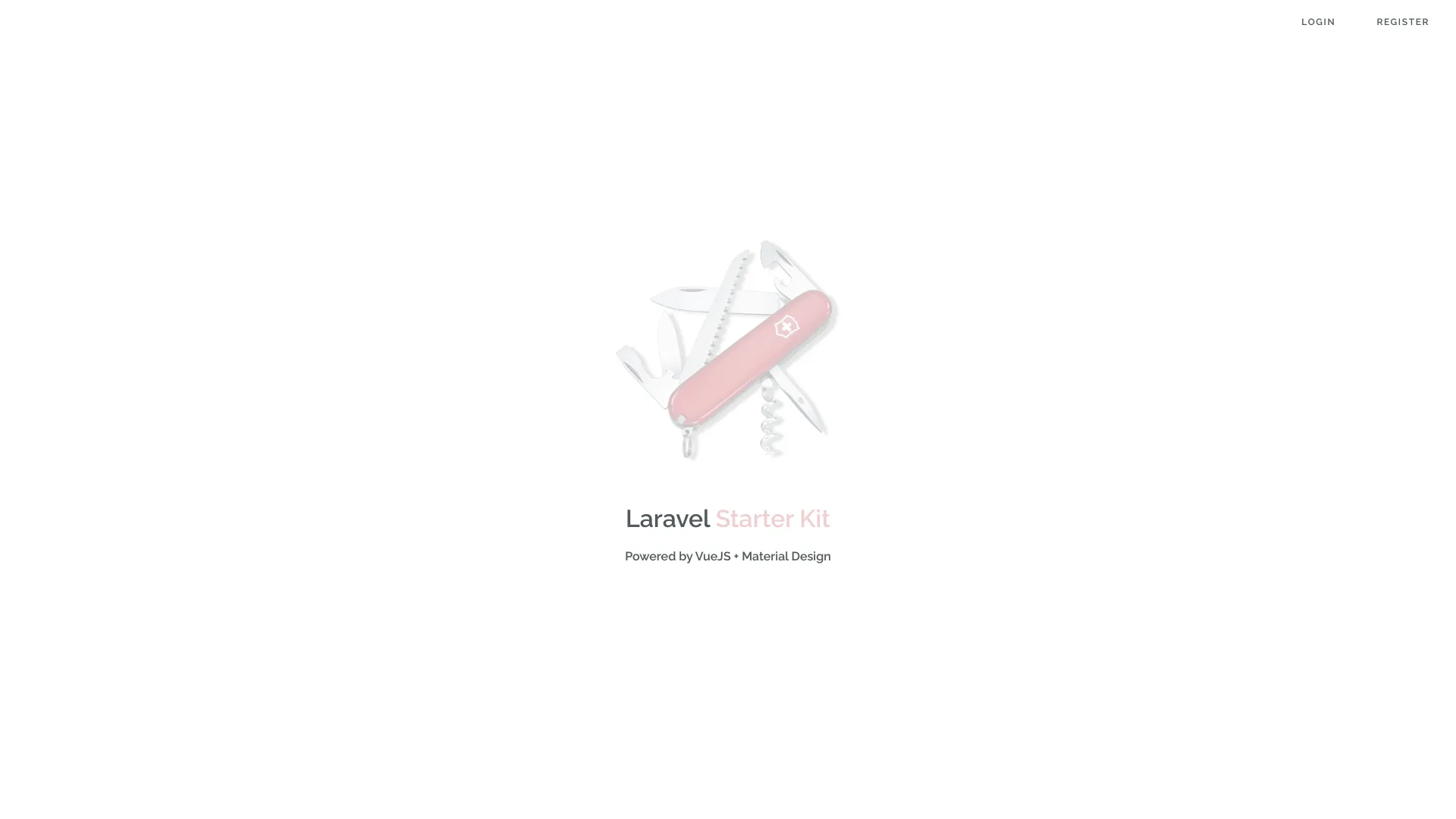Laravel Boilerplates & Starter Kits
Discover everything you need to know about Laravel boilerplates and starter kits. Explore the benefits of using Laravel, its common features, and how it compares to other frameworks. Learn how Laravel boilerplates can streamline your development process with practical use cases.
Technologies
Reset


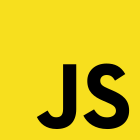





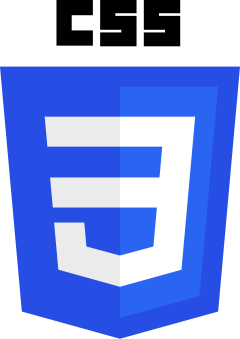



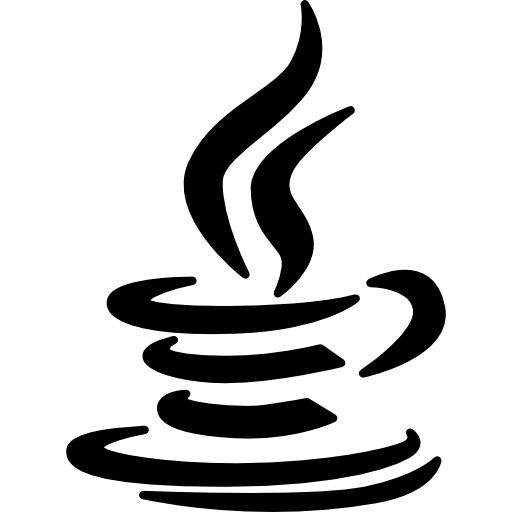
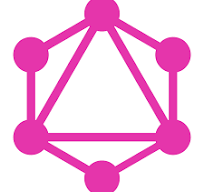




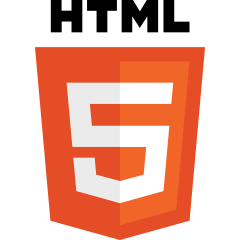



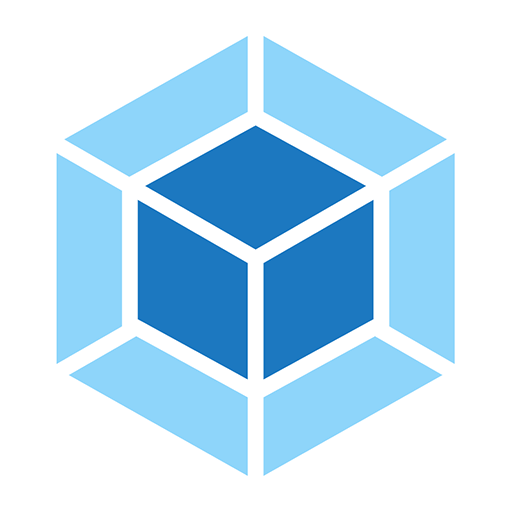

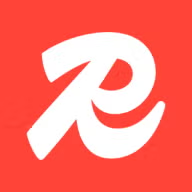












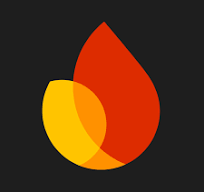
Tags
Cruip - Beautiful Tailwind CSS Templates
Supastarter - Next.js, Nuxt & SvelteKit Starters
UseSAASKit - SaaS Next.js Template
Shadcnblocks - Block set for Shadcn UI + Tailwind
Larafast
Tenancy for Laravel
Laravel Spark
Arcanist
Velocity
Miracuthbert SaaS Boilerplate
Laravel Nuxt Docker
Laravel Admin Template
Spa Starter Kit
Wp Tailwindcss Theme Boilerplate
Docker2saas
Laravel Vue Boilerplate
Laravel React Bootstrap
Builder
Laravel Packer
Starter Laravel Angular
Laravel Spa
Maizzle Php
Enso
Laravel Vue Crud Starter
Laravel Api Startup
Laravel Starter Kit
Learn More About Laravel Boilerplates
What is Laravel?
Laravel is a robust and elegant PHP framework designed for building web applications with expressive, elegant syntax. It simplifies common tasks such as routing, authentication, and database interactions, making it an excellent choice for both beginners and seasoned developers. Laravel provides a clean and accessible API, enabling developers to build scalable and maintainable applications efficiently.
Benefits of Using Laravel
- Elegant Syntax: Laravel's expressive syntax is easy to read and write, allowing for a more streamlined development process.
- MVC Architecture: Adopts the Model-View-Controller (MVC) pattern, which promotes organized code structure and separation of concerns.
- Eloquent ORM: Laravel's Eloquent Object-Relational Mapping (ORM) simplifies database interactions by allowing developers to work with database records as if they were simple PHP objects.
- Security: Built-in security features protect against common vulnerabilities like SQL injection and cross-site request forgery (CSRF).
- Blade Templating Engine: Laravel’s Blade templating engine provides a powerful and intuitive way to build dynamic layouts and views.
- Artisan CLI: Laravel’s command-line interface, Artisan, streamlines tasks such as database migrations, seed generation, and code scaffolding.
- Task Scheduling: Automate repetitive tasks with Laravel’s built-in task scheduling capabilities.
Common Features of Laravel Boilerplates
- Pre-configured Settings: Laravel boilerplates come with essential configurations and setups to get you started quickly.
- Authentication: Includes pre-built user authentication and authorization systems to handle user login and registration.
- User Interface Components: Provides pre-designed UI components and layouts that can be easily customized to fit your project’s needs.
- Database Migrations: Includes predefined database migrations and seeders to streamline database setup and modifications.
- Routing and Controllers: Sets up basic routing and controllers to facilitate the creation of RESTful APIs or web routes.
- Error Handling: Integrated error handling and debugging tools to manage and troubleshoot issues efficiently.
Laravel vs. Symfony
Symfony is one of the most popular alternatives to Laravel and offers its own set of strengths:
- Flexibility: Symfony is known for its flexibility and modularity, allowing developers to use only the components they need.
- Enterprise-Level Support: Often preferred for large-scale enterprise applications due to its robustness and long-term support.
- Learning Curve: Symfony has a steeper learning curve compared to Laravel, which might be challenging for beginners.
In contrast, Laravel provides a more streamlined experience with its built-in features and elegant syntax, making it a preferred choice for many developers who want a balance between ease of use and powerful capabilities.
Laravel Boilerplates Use Cases
- Startup Projects: Quickly launch new projects with pre-configured settings and essential features to focus on core functionality rather than setup.
- Prototyping: Build and test prototypes efficiently using ready-made components and configurations.
- Internal Tools: Develop internal applications or dashboards with minimal setup and customization.
- Learning and Training: Use boilerplates as educational tools to learn best practices and common patterns in Laravel development.
- Client Projects: Deliver client projects faster by leveraging boilerplates to handle routine setup and configuration tasks.
